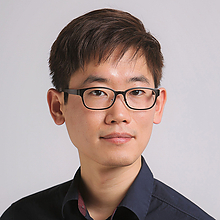 To build a truly secure computer system, you have to know it inside and out—not just how it works, but also all the ways it can be attacked and systematically dismantled.
To build a truly secure computer system, you have to know it inside and out—not just how it works, but also all the ways it can be attacked and systematically dismantled.
For Yonghwi Kwon, who joined the University of Maryland this semester as an assistant professor of electrical and computer engineering, that means getting inside the head of a cybercriminal.
“In my field, I believe in actively finding the weaknesses—attacking your own systems the way an adversary would is truly the best defense,” explains Kwon, who is a core faculty member in the Maryland Cybersecurity Center (MC2).
At Maryland, Kwon directs the Secure and Sound Software Research Group, where his team tries to come up with solutions that are both practical—that is, easy to apply and with minimal overhead—and fundamental, meaning the solution isn’t easily bypassed in the future.
Kwon says his group has several high-level benchmarks that drive their work. First, they focus on making existing systems as secure as possible against adversaries. But if a hacker does succeed, the researchers will perform a detailed analysis to figure out how they succeeded so that his team can improve their systems and prevent similar attacks in the future.
This mimics what people do in real life, Kwon explains. For example, to protect their household, homeowners often install a deadbolt door lock and security cameras. But no security system is perfect—it could still be bypassed. If that’s the case, the homeowner needs to assess the camera footage and other evidence to understand how the system was circumvented in order to make improvements.
There are differing levels of hacking as well, Kwon says. Petty hackers trying to make a quick buck are one thing, but more advanced cybercriminals are a different thing entirely and require a more comprehensive approach.
“Analyzing existing security incidents requires various techniques, including existing software systems, networks, program analysis, and even human behaviors,” he says.
In addition to his tenure appointment and affiliation with MC2, Kwon also has an appointment in the University of Maryland Institute for Advanced Computer Studies (UMIACS), where he looks forward to diving into comprehensive research projects. “UMIACS provides me with all the resources I need,” he says. “There are numerous diverse faculty experts, great students, and tremendous administrative and technical support. I’m glad to be here and am looking forward to working together with my new colleagues.”
Another area of Kwon’s research involves estimating the security and dangers of a system via simulation or virtualization.
For example, he says a simulator provides a safe environment to test an autonomous driving car under various extreme situations, including dangerous tests like seeing if a car can avoid an object at a very high speed.
“Tests like those can’t easily be done in the real world,” Kwon says. “Simulations are very helpful but also very resource demanding. UMIACS’ computer resources are truly ideal for such research.”
Kwon received his doctorate in computer science from Purdue University in 2018. Before coming to UMD, he was the John Knight Career Enhancement Assistant Professor of Computer Science at the University of Virginia.
A recipient of both National Science Foundation CAREER and CRII Awards, he has also been recognized with Distinguished Paper Awards at the Association of Computing Machinery’s SIGPLAN and SIGSOFT conferences, as well as a Maurice H. Halstead Memorial Award, an Automated Software Engineering Best Paper Award, and a Microsoft Most Valuable Professional Award.
—Story by Melissa Brachfeld, UMIACS communications group